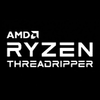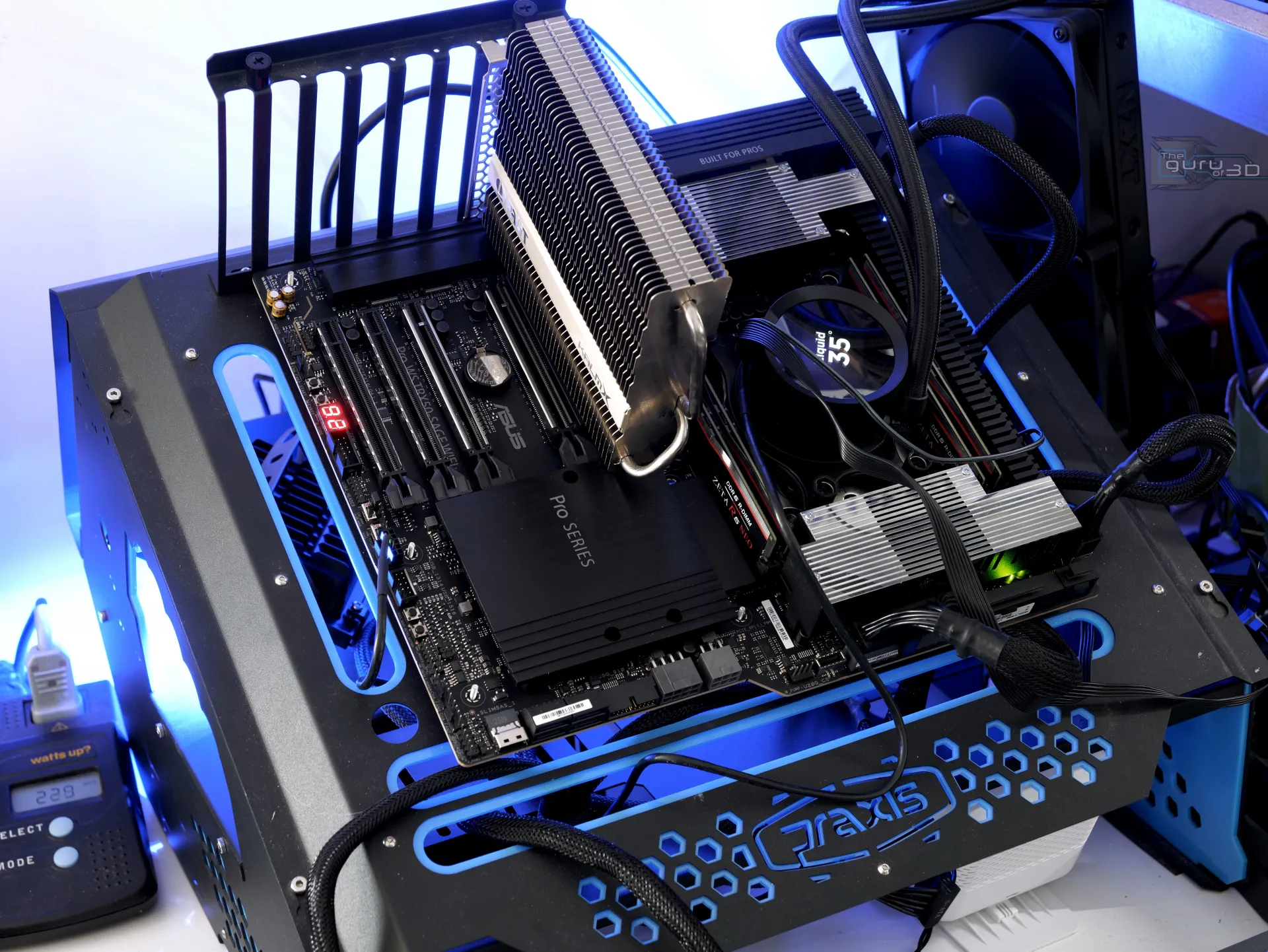The Ryzen Threadripper 7000 family
AMD has announced the release of its latest chip selections, which include SKUs with up to 96 Zen 4 CPU cores. This capability aligns with that of the highest-end Genoa chips. The Threadripper Pro 7000 models are designed to provide substantial connectivity, featuring 128 lanes of PCIe 5.0, with additional lanes supporting PCIe 3.0 standards. AMD's Threadripper 7000 series processors are designed on the basis of the EPYC Genoa architecture and are divided into two classifications: the workstation-oriented Threadripper Pro and the High-End Desktop (HEDT) Threadripper non-Pro variants. This bifurcation is a deliberate technical product segmentation strategy, aiming to differentiate the feature set rather than suggest any performance inadequacy for specific applications. The Threadripper Pro variant is enhanced with a larger core count, augmented I/O capabilities, and superior bandwidth compared to the non-Pro variant, mirroring the strategy previously seen with the Threadripper 3000 series. Notably, the Threadripper 7000 Pro is positioned as a more capable processor within the workstation domain.
The Threadripper 7000 series processors utilize the Zen 4 CCDs, acknowledged for their performance in recent offerings, and incorporate an I/O die (IOD) optimized for server environments. Both processor lines are compatible with the new 4844-pin LGA sTR5 socket, which is central to this generation of products. Despite the common socket design, the processors are supported by two distinct motherboard platforms: the WRX90 for the Threadripper 7000 Pro and the TRX50 for the non-Pro variant. These motherboards are designed to enhance the capabilities of their respective processors, with further details highlighting the specific features and design considerations of each platform.
| AMD Ryzen 7000 / Zen 4 Comparison | ||||
|
|
Ryzen | Threadripper | Threadripper Pro | EPYC (Genoa) |
| Architecture | Zen 4 | Zen 4 | Zen 4 | Zen 4 |
| Flagship SKU | R9 7950X | TR 7980X | TR Pro 7995WX | EPYC 9654P |
| Cores | 6-16 | 24-64 | 12-96 | 16-96 |
| Socket | AM5 | sTR5 | sTR5 | SP5 |
| Base Freq | 4500 MHz | 2500 MHz | 2500 MHz | 2400 MHz |
| Turbo Freq | 5700 MHz | 5100 MHz | 5100 MHz | 3700 MHz |
| L3 Cache | 64 MB | 256 MB | 384 MB | 384 MB |
| DRAM Channels | 2 x DDR5-5200 | 4 x DDR5-5200 | 8 x DDR5-5200 | 12 x DDR5-4800 |
| DRAM Capacity |
192 GB (UDIMM) |
1TB, ECC (RDIMM) |
2 TB, ECC (RDIMM) |
6 TB, ECC (RDIMM) |
| PCIe |
5.0 x24 + chipset (x4) |
5.0 x48 + 4.0 x32 + chipset (x4) | 5.0 x128 + 4.0 x8 + chipset (x4) | 5.0 x128 |
| TDP | 170 W | 350 W | 350 W | 360 W |
| MSRP | $550 | $4999 | - | $10,625 |
Distinguishing itself from the Genoa series, the Threadripper 7000 Pro series supports 8 lanes of DDR5 memory, which is four times the capacity provided by AMD's existing desktop processors. Genoa, on the other hand, supports 12 lanes of DDR5 memory. The standard Threadripper 7000 series, which is not labeled as 'Pro', has limitations by comparison. It includes a configuration with a maximum of 64 Zen 4 cores across 8 CCDs. The I/O capabilities also differ markedly from the Pro series; it offers 48 lanes of PCIe 5.0 and an additional 32 lanes at PCIe 4.0 speeds, totaling 80 PCIe lanes. The memory support is halved in comparison to the Pro series, with only 4 channels of DDR5 memory. Both the Pro and non-Pro Threadripper 7000 series utilize DDR5 Registered DIMMs (RDIMMs), exclusively supporting RDIMMs over Unbuffered DIMMs (UDIMMs) due to differences in pin configuration.


